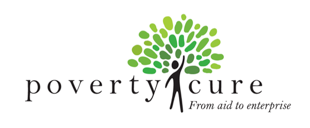Economic Freedom and Development
Economies that enjoy high levels of freedom tend to be highly productive. There are two main indices of economic freedom, the Economic Freedom of the World (Fraser Institute) and the Index of Economic Freedom (Heritage Foundation/Wall Street Journal). While there are differences between the two and limitations to each, both focus attention on a similar set of concerns, including free trade, property rights, levels of taxation, and business regulation. Most importantly, both find similar positive correlations between economic freedom and economic growth.
For example, high rankings correlate strongly with higher average income per person, higher income of the poorest 10%, higher life expectancy, higher literacy, lower infant mortality, higher access to water sources and less corruption. The people living in the top one-fifth of countries enjoy an average income of $23,450 and a growth rate in the 1990s of 2.56 percent per year; in contrast, the bottom one-fifth in the rankings had an average income of just $2,556 and a -0.85 percent growth rate in the 1990s. The poorest 10 percent of the population have an average income of just $728 in the lowest ranked countries compared with over $7,000 in the highest ranked countries. The life expectancy of people living in the highest ranked nations is 20 years longer than for people in the lowest ranked countries.
Economic Freedom versus Crony Capitalism
Economic freedom is closely related to the rule of law. Economic freedom implies equal opportunity for all to participate in commercial affairs, to initiate financial transactions, and to create business enterprises. Although it may be seen to be synonymous with capitalism, it should not be confused with a “crony capitalism” by which large and powerful firms with political connections benefit at the expense of marginalized individuals and small operations.
Economic freedom thus requires equal protection under the law and is opposed to favoritism. The property rights of the poor are protected as vigorously as those of the wealthy and well-connected. It is not synonymous with laissez-faire capitalism, because economic freedom is compatible with reasonable governmental regulations designed to promote the common good by, for example, addressing poverty, preventing human rights abuses, and protecting the environment.
Economic Freedom and Political Liberty
Although the relationship is not always perfectly correlated, history and contemporary experience suggest that freedom in one sphere tends to be linked to freedom in others. Where there is a high level of economic freedom, for example, there is usually strong protection of political and religious liberties as well. Governments that are responsive to their constituents are more likely to ensure conditions that enable all citizens to tap into the prosperity of the economy.
The Moral Dimension of Economic Freedom
Arguments for economic freedom extend beyond the material benefits that might result, with some emphasizing that defending the freedom to participate actively and fully in the economy also respects human dignity, leads to a more robust recognition of responsibility, and fosters a sense of achievement and self-worth. These reasons may contribute to the fact that economic freedom studies find that higher economic freedom correlates strongly with higher self-reported happiness.


